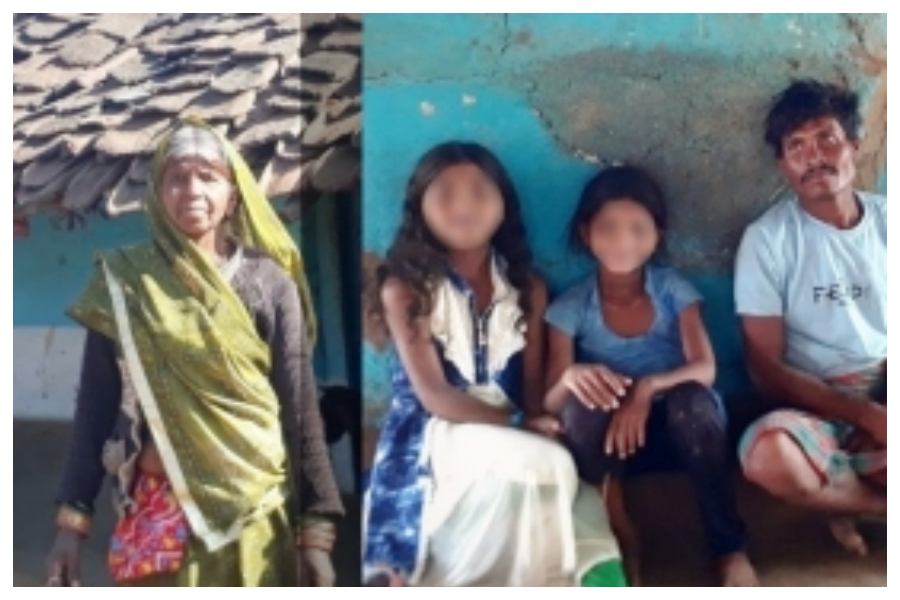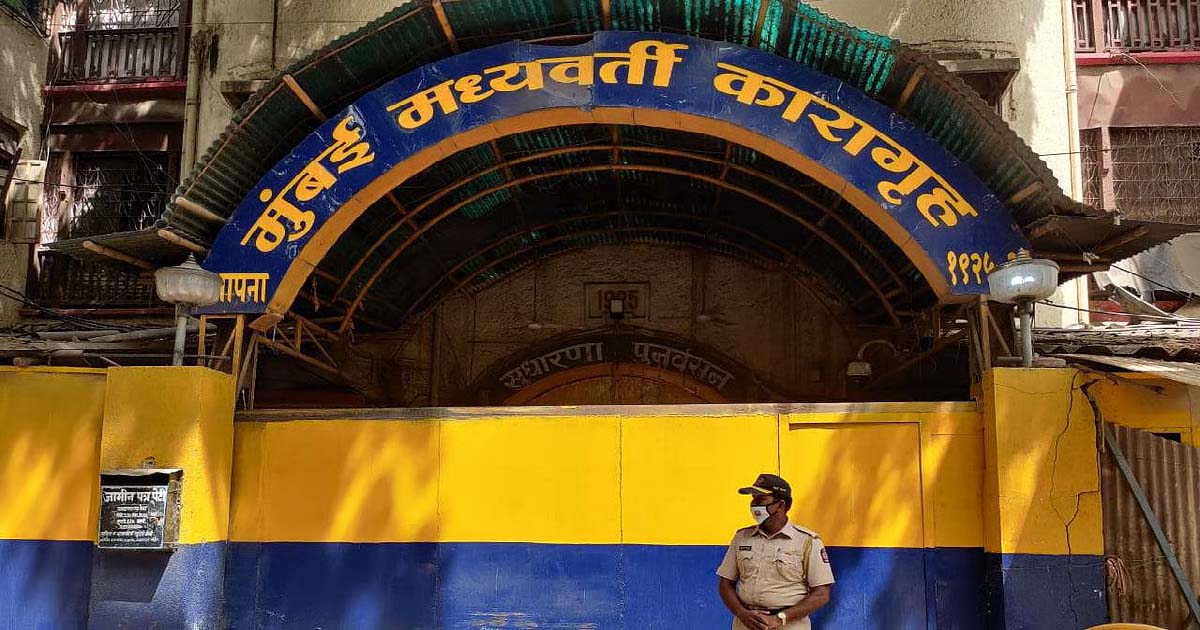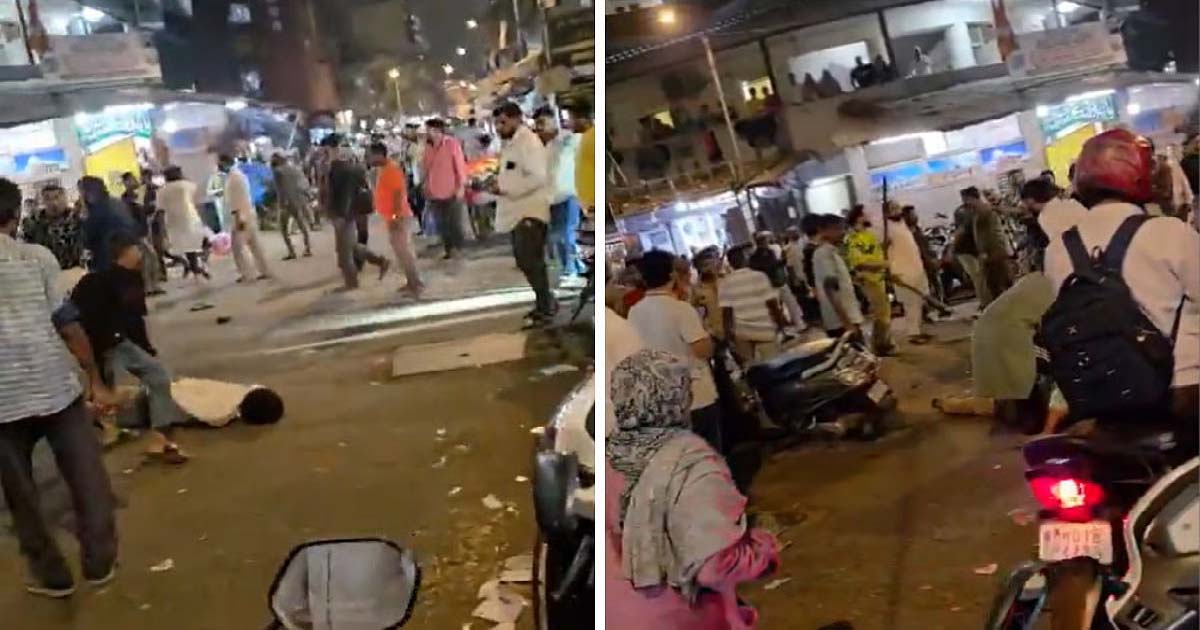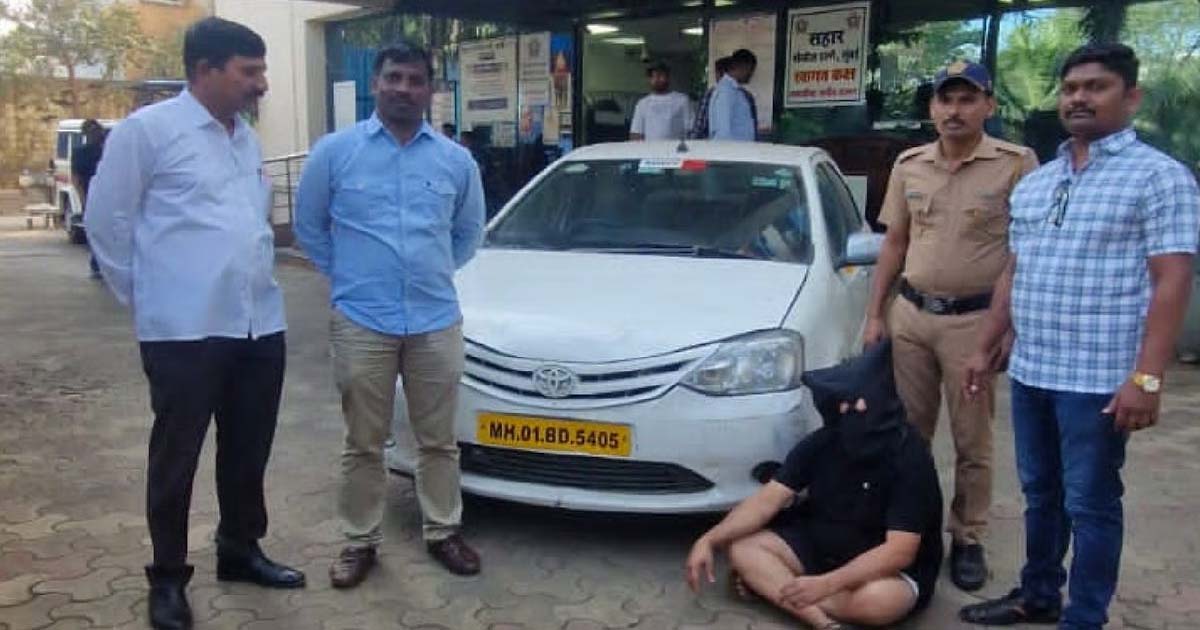Crime
Migration Mess: No jobs in hand amid food crisis, Madhya Pradesh’s Khandwa witnesses tribal exodus

Adivasis from the region move to other states for employment, only to find themselves worked to the bone, living in grim conditions and often cheated of their wages or held hostage by employers.
“I have a wife and five daughters, but there’s no work in the village. Even if you find some, the panchayat takes months to pay us,” said 35-year-old Poonamchand Sitaram Gautam, a resident of Khandwa district in Madhya Pradesh, who recently returned from Koratala in Telangana, where he was employed as a construction worker.
“Under the Public Distribution System, we receive just 5 kg of foodgrains for each member of the family every month. But these rations barely last a fortnight,” he added, alluding to the food crisis in his tribal-dominated village of Dabhia in the state’s Khalwa region.
Based on a field study conducted in 12 states by Ekta Parishad, Madhya Pradesh is purported to have the highest inter-state migration rate — standing at 32.39 per cent, Khandwa being one of the districts leading. According to estimates by a local body, between 5,000 and 10,000 tribals migrate out of Khalwa every year to work as labourers in other states.
Khalwa is spread over 70 to 100 km from the district headquarters. While many villages of this block are part of the Khandwa-Betul State Highway, most of Khalwa falls under the jurisdiction of the forest department, with 90 per cent of the population living in remote areas. In fact, when 101Reporters visited Dabhia, we found that at least two members from each house had migrated to other states for work.
Last year, Gautam’s 16-year-old daughter Garima found work as a labourer to build drains under the Mahatma Gandhi National Rural Employment Guarantee Act (MGNREGA). After working eight hours a day for five weeks, Garima was paid only two weeks’ worth of wages. When her mother Rajni Bai questioned the panchayat, she was told that the money had been transferred to her account, but they have yet to receive it.
Jamna Kallu Chauhan, too, shared her woes. “In the last two weeks, I carried out digging work for the panchayat eight hours a day. But I was paid only for one week. I approached the panchayat office in Semliya repeatedly, but no one cooperated with me,” the 60-year-old said.
The sarpanch of Semliya panchayat Pyari Bai Ramesh Takher, however, denied any outstanding payments.
“No labourer’s wages are outstanding with the panchayat,” she claimed. “The money has been transferred into their accounts. The villagers often withdraw money and blame us later.”
No logic to the numbers
Kishore Kumar Uike, the CEO of Janpad panchayat, insisted that the district is continually opening up job opportunities for the area’s local residents.
“Janpad panchayat has created employment for 17,000 labourers in the development block,” he said. “I don’t understand why people are migrating for work. Even today, if anyone approaches us for work through the panchayat or district, we will provide them with work.”
According to the MGNREGA website, which currently seems inaccessible, 3,821 days of wages were generated in Khalwa from May 2020 to May 2021, benefiting 644 workers. The work given to labourers included pond construction, canal deepening and dam checks. The website has had no updates since then.
A hunger-induced distress migration
According to Prakash Michael, treasurer of the Spandan Samajseva Samiti, an organisation working to provide nutrition and employment to these tribals, the primary cause for migration is the food crisis in the region, which has increased in the last couple of decades.
“Adivasis have ditched growing traditional crops and turned to cash crops such as soybean. Bajra and other millets such as koda and kutki, once the backbone of their nutrition, are no longer visible in the fields. They use most of the money they earn by selling produce to repay loans. They are left with very little foodgrains, so this is basically hunger-induced distress migration,” Michael told 101Reporters.
This explanation holds true for 60-year-old Jamna, who now lives alone in her hut. Her husband, Kallu Chauhan, had “taken up a contractual job of harvesting moong in Nahali, Harda district, despite being terribly ill. The family’s financial crisis had pushed him to move, and within three days, we lost him to the illness.”
One lakh labourers migrate from Nimar
While the administration has no official figures to share, Spandan Samajseva Samiti, which collects data for land surveys, estimates that around 1 lakh people from Khandwa, Khargone, Barwani and Burhanpur of Nimar district migrate to Maharashtra, Telangana, Karnataka, Goa and Andhra Pradesh each year.
However, this large workforce is unorganised and unprotected. These labourers are neither insured by their employers, nor are they provided safety equipment for use while working. This often leads to their death, and since there are no official records of migrant labourers, employers shirk their responsibilities by deeming them mere accidents.
Under the Inter-State Migrant Workmen Act, the employer must provide migrant workers with food, lodging, healthcare and social activities. Labour officials must be kept in the loop to ensure that workers’ rights are not violated. Also, the figures of migrant workers must be displayed on the Migrant Labourer Portal, though no data appears to track this information.
District Labour Officer S.S. Alawa explained that the act “can be invoked only if the contractors or residents officially inform the department about their migration, which the tribals here fail to do. Hence, they cannot exercise any rights under this law”.
Wily contractors, callous employers
Furthermore, contractors here deploy locals to connect them with labourers. These people take advantage of their knowledge of the Korku dialect and lure the tribals by promising large sums of money as wages. They are often paid an advance so they believe it’s a good deal and manage to convince their friends and neighbours, too.
On the appointed day, the contractor’s vehicle arrives at the village to transport the migrants. The journey usually takes place at night, so the workers don’t recognise where they are being taken. They often don’t find out for days and weeks which village, district or state they are working in. The contractor shares his mobile number to placate the families, but the phone is often turned off once they set out with the migrant labourers.
Daji Lofa, a 30-year-old who returned from harvesting sugarcane in Maharashtra, recalls a contractor who had come to the village before Diwali last year and promised everyone cane-cutting work for three months. He had also promised them huge amounts of money, which would enable them to stay home without working for the rest of the year. He had paid an advance of Rs 7,000 to one of the workers. A week after Diwali, the contractor arrived at 11 pm with two mini Eichers and took 40 people with him. But they were refused pay after putting in hours of hard labour.
Such are the kinds of experiences that the tribals of Khandwa attempt to flee.
Babu Mangal, one of the workers from Khalwa held hostage in Pandharpur, Maharashtra, last year, said they were treated worse than animals. He, along with his wife, had to continue harvesting sugarcane despite being terribly ill.
“We didn’t get any treatment when we were ill. We had to arrange for our own food and sleep in the open fields or inside warehouses,” the 50-year-old told 101Reporters.
Similarly, when Sunita Kajle from Langoti village went to Maharashtra to work, she found out she was pregnant. But she was still forced to continue working long hours without relief or proper nutrition until the sixth month of her pregnancy. As a result, she gave birth to a malnourished daughter after returning.
In some cases, the tribals bear the consequences of this survival act — the migration — longer than they could have anticipated, at times for life.
Take Munni Bai, for instance. She injured herself while working at a brick kiln and continues to live with it. She had dropped bricks on her feet, which initially caused swelling and later became worse. Munni can no longer work due to her injured leg and has received no compensation from neither the contractor nor the government.
Socio-economic factors
Khandwa district has a population of 13,10,061, of which 80.20 per cent live in villages. The literacy rate of Khalwa is only 43.10 per cent (51 per cent among males and 34 per cent among females). Despite this, the proportion of labour in Khalwa is 17.38 per cent, of which 9.66 per cent is male and 7.72 per cent female. Agriculture is the primary source of income, but the people here barely own any land, 2 acres per family on an average.
The percentage of total agricultural farmers in the tehsil is 14.08 per cent in Khalwa, of which 9.88 per cent are male and 4.20 per cent are female. There’s no focus on employment-oriented education, and the entire sector is dependent on resources from agriculture and forests.
In 2009-2010, the state government had created natural resource-related jobs in Awliya under the Small Forest Produce Association, for the manufacture of incense sticks, perfumes, bamboo furniture and household items. Initially, over a 100 people were employed under this scheme, but they could not grow beyond making incense sticks, which wasn’t financially viable and hence, discontinued.
Crime
Mumbai Crime: Undertrial Prisoner Assaults Policeman Inside Arthur Road Jail, Case Registered

Mumbai: A shocking incident has come to light from Mumbai’s Arthur Road Jail, where an undertrial prisoner allegedly assaulted a police constable on duty.
The accused, Lokendra Uday Singh Rawat (35), is reported to have headbutted Police Constable Hani Baburao Wagh (30), causing injuries to his nose, and also abused and pushed other on-duty police personnel. A case has been registered in this connection at the N. M. Joshi Marg police station.
According to the FIR, the complainant, Police Constable Wagh, is attached to Armed Police Division–2, Tardeo. On January 27, he reported for his 24-hour day-duty shift at Arthur Road Jail at around 8 am and was assigned security duty at the main entrance of the prison.
At around 9 pm, Armed Police Constables Suresh Sandu Mali and Sachin Chavan brought undertrial Lokendra Rawat back to the jail after producing him before the Dindoshi Court. Rawat allegedly appeared agitated and, after entering the jail premises, sat near the gate and began verbally abusing the police personnel on duty.
Constable Wagh asked Rawat to calm down and refrain from using abusive language. However, Rawat allegedly became more aggressive and continued shouting abuses. When Wagh approached him again to pacify the situation, Rawat suddenly headbutted him on the nose with force.
As a result, Constable Wagh sustained injuries and started bleeding. Fellow constables Sachin Chavan and Suresh Mali immediately intervened, restrained the accused, and informed the on-duty prison authorities about the incident. Rawat was subsequently sent for medical examination to Sir J.J. Hospital.
After receiving medical treatment, the injured constable lodged a formal complaint on January 28 at the N. M. Joshi Marg police station. Based on the complaint, police have registered a case against the undertrial under relevant sections of the Bharatiya Nyaya Sanhita (BNS). Further investigation is ongoing.
Crime
Mumbai Crime: One Critical Among 5 Injured After Violent Group Clash Breaks Out In Nagpada, 13 Detained

Mumbai: A violent confrontation between two groups erupted in South Mumbai’s Nagpada area late Thursday night, leaving several people injured and sparking a massive police response. Authorities have confirmed that one individual remains in critical condition following the brawl, which has once again put the spotlight on the volatile security situation in the densely populated area.
According to the Mumbai Police, the altercation broke out between two local groups over a financial dispute that escalated rapidly. What reportedly began as a verbal spat soon turned into a physical battle.
A video of the clash has surfaced on the internet shows the exact moments of the violent situation. Two men can be seen lying on the road, probably unconsious after participating in the brawl. Five to six other men can be seen weilding rods and sticks engaged in a fight, in full public view.
The violence resulted in five to six individuals sustaining serious injuries. They were rushed to a nearby hospital for emergency treatment. Medical officials confirmed this morning that while most are stable, one victim is currently in critical condition and is battling for life in the intensive care unit.
The Nagpada Police arrived at the scene shortly after the violence peaked to disperse the crowd and restore order. Heavy police deployment remained in the area throughout the night to prevent any retaliatory attacks or further communal or localised tension.
In a swift crackdown following the incident, the Mumbai Police have detained 13 individuals suspected of involvement in the clash. The police have officially registered a case against the accused parties under various sections of the Indian Penal Code (IPC), including Section 109 and Section 191.
As of Friday morning, the situation in Nagpada is reported to be under control, though an uneasy calm prevails. Security has been beefed up at key intersections, and patrolling has been intensified.
Crime
Mumbai Crime: 50-Year-Old Taxi Driver Arrested For Cheating American National Of ₹18,000 For 400-Metre Ride Near Airport

Mumbai: The Sahar Police on January 28 arrested a taxi driver for allegedly defrauding an American national of Rs 18,000 for a taxi ride of just 400 metres.
The accused has been identified as Yashraj Yadav alias Papuu (50). The police have seized the vehicle, and the accused is currently in judicial custody. Two accused were involved in the crime. One is Yadav, while his associate, Taufiq Shaikh, is absconding.
The case came to light after a social media post by the American national, Argentina Ariano, went viral. In her post, she alleged that she was scammed by a taxi driver shortly after arriving in Mumbai.
According to the police, the victim had arrived in India for work. The incident took place on January 12 at around midnight after she landed at the Mumbai International Airport.
She alleged that the taxi driver charged her Rs 18,000 for a trip to a hotel located barely 400 metres away. Yadav allegedly took the woman on a 20-minute drive in Andheri (East), returned to the same locality, dropped her at the hotel and collected the fare.
Nearly 15 days later, on January 26, she posted about the incident on social media. In her post, she wrote: “Landed in Mumbai recently, took a taxi to the Hilton Hotel. The driver and another man first took us to an unknown location, charged us $200 (Rs 18,000), and then dropped us at the hotel, which was only 400 metres away. Taxi No: MH 01 BD 5405.” She tagged Mumbai Police and the Traffic Police and used the hashtag #scam.
Responding to the post, Mumbai Police replied, “We have followed you. Please share your contact details in DM.” Following this, the Sahar Police initiated an inquiry.
During the investigation, police found that there are three Hilton hotels near the airport and identified the exact hotel where the American national had stayed. However, within 12 to 13 hours of the incident, she had checked out of the hotel and left the country. She checked out the next day and went to Pune, from where, after completing her tour, she returned to the US.
Manoj Chalake, Senior Police Inspector of Sahar Police Station, said, “We are trying to get the victim’s statement via video call or email. She did not inform the hotel staff about the incident. We have repeatedly informed people to communicate with the hotel or the local authority if a tourist suspects that a cabbie is fleecing them.”
The police contacted her and requested her to file a formal complaint. Although she responded with “Okay”, she did not lodge any complaint.
The Sahar Police then registered a suo motu case on January 28 against an unknown taxi driver under Sections 318(4) (cheating) and 3(5) of the Bharatiya Nyaya Sanhita (BNS) and launched a search operation.
Using the taxi number mentioned in the post, police traced the accused, Yadav, who resides in Sahar Village and is a permit taxi driver. The vehicle, a white Toyota Etios, has been seized. The vehicle is registered under the S.M.S. Tours and Travels company. Police said they would send his details to the Regional Transport Office (RTO) for cancellation of his licence.
A police officer said two persons were involved in the crime — Yadav and his associate, Taufiq Shaikh, around 50 years old. Yadav allegedly negotiated the fare with the foreign national and then called Shaikh, who arrived with the car. Both allegedly cheated the tourist.
Shaikh later took the money from Yadav and fled to Uttar Pradesh. Police records show that several cheating cases have been registered against Shaikh at various police stations. Yadav, however, has no prior criminal record.
Manoj Chalake added, “We have seized the car. The cash could not be recovered as the other accused took the money and fled. We are searching for him. We will soon call the company owner for a statement.”
He further said that the police do not have much information about the foreign national, as she has not provided details about the purpose of her visit or other relevant information.
The Metropolitan Magistrate Court initially remanded Yadav to one day of police custody and later sent him to judicial custody.
-

 Crime3 years ago
Crime3 years agoClass 10 student jumps to death in Jaipur
-

 Maharashtra1 year ago
Maharashtra1 year agoMumbai Local Train Update: Central Railway’s New Timetable Comes Into Effect; Check Full List Of Revised Timings & Stations
-

 Maharashtra1 year ago
Maharashtra1 year agoMumbai To Go Toll-Free Tonight! Maharashtra Govt Announces Complete Toll Waiver For Light Motor Vehicles At All 5 Entry Points Of City
-

 Maharashtra1 year ago
Maharashtra1 year agoFalse photo of Imtiaz Jaleel’s rally, exposing the fooling conspiracy
-

 National News1 year ago
National News1 year agoMinistry of Railways rolls out Special Drive 4.0 with focus on digitisation, cleanliness, inclusiveness and grievance redressal
-

 Maharashtra1 year ago
Maharashtra1 year agoMaharashtra Elections 2024: Mumbai Metro & BEST Services Extended Till Midnight On Voting Day
-

 National News1 year ago
National News1 year agoJ&K: 4 Jawans Killed, 28 Injured After Bus Carrying BSF Personnel For Poll Duty Falls Into Gorge In Budgam; Terrifying Visuals Surface
-

 Crime1 year ago
Crime1 year agoBaba Siddique Murder: Mumbai Police Unable To Get Lawrence Bishnoi Custody Due To Home Ministry Order, Says Report


















